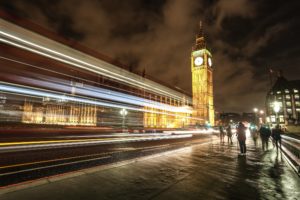Introduction
On Wednesday, November 25th Chancellor Rishi Sunak delivered his Spending Review for next year to the House of Commons. In the absence of an Autumn Budget, the statement to the Commons set out the Government’s spending commitments for 2021/22.
The Chancellor had announced some time ago that there would not be a formal Budget this autumn, because of the current economic uncertainty. Instead, the rather less formal Spending Review took centre stage.
The overall theme of the speech was “jobs, businesses and the public services” as Sunak promised a “once in a generation investment in infrastructure, creating jobs, growing the economy and increasing pride in the places we call home.”
What were the pundits expecting?
The Treasury had trailed on Tuesday that the Chancellor will spend £4.3bn on new unemployment programmes, including a new Restart scheme to help people find work. Almost 1m people have lost their jobs in the pandemic, a figure which is expected to rise dramatically as the furlough scheme winds down. 
There was expected to be a £3bn package to support the NHS, with £1.5bn allocated to ease existing pressures, £1bn to allow the NHS to address the backlog of scans, checks and operations, and a further £500m to support mental health services. However, many commentators also expected a public sector pay freeze, with public sector pay having outstripped that in the private sector over the last year.
It was widely expected that there would be at least £100bn for the National Infrastructure Project, including a tranche of road, housing and green energy projects as the Chancellor sought to ‘level up’ the Midlands and the North.
‘Spooks’ could, apparently, look forward to ‘tens of millions’ going into a ‘world leading’ counter terrorism operation bringing together intelligence agencies and senior police officers. Another measure that had been widely trailed, not least by Conservative MPs, was a reduction in the foreign aid budget from 0.7% of GDP to 0.5%.
The Economic Background
Clearly, the pandemic has left the UK poorer. By the end of this year the economy is expected to be at least 10% smaller than it was before the pandemic. Alongside the Spending Review, the Chancellor was due to disclose the latest forecasts for the economy and the public finances from the Office for Budget Responsibility.
Earlier this year the OBR had been forecasting a 13% contraction in GDP. It is now not expected to be that bad, but the reduction is still likely to be in double digits, with government borrowing topping £350bn – a level never before seen in peacetime.
The Chancellor was slightly hamstrung by the spending commitments, for example to the NHS, already made. Would the remaining money be enough to go round? The Institute for Fiscal Studies thought the answer was ‘no,’ suggesting that courts, prisons and local government are likely to face cuts, as well as the widely trailed overseas aid budget.
The Chancellor’s Speech
Getting to his feet in a very socially distanced House of Commons, the Prime Minister answered the weekly PMQs via a video link from 10 Downing Street and the Chancellor immediately set out the scale of the problem. “The health emergency is not yet over,” he said. “The economic emergency has only just begun,”
Nevertheless, ‘spending was the key word.’ There was no mention within his address of the fact that all of this must, at some point, be paid for, with the Chancellor seemingly happy to defer any hint of tax changes until the March Budget. Surprisingly, with just over a month to go to the end of the transition period, there was no mention of Brexit either.
He stated that total spending on Coronavirus to date amounted to £280bn, with an expectation that public services funding to tackle the pandemic next year will be £55bn.
Rishi Sunak said that he wanted to prioritise “jobs, businesses and the public services.” But there was no mention of any further support packages for business: you feel that once the current measures wind down, that will be that. As he has said many times, ‘we cannot protect every job and every business.’
The Numbers
It wouldn’t be a set piece speech from the Chancellor without him giving us the numbers on growth and borrowing. If you are nervous you should, perhaps, look away now.
The Office for Budget Responsibility (OBR) has forecast that the UK economy will contract by 11.3% this year – the worst performance for more than 300 years. It is expected to recover by 5.5% next year and 6.6% in 2022 but, said the Chancellor, the economy will not be back to its pre-Covid level until the fourth quarter of 2022. 
Even by 2025, by when we’ll have had another General Election, the economy will be 3% smaller than forecast in the March Budget. “The economic damage is likely to be lasting. [There will be] long-term scarring,” said the Chancellor.
Government borrowing will be £394bn this year, that is equal to 19% of GDP and is the highest figure recorded in peacetime, before falling to £164bn next year and £105bn in 2022/23. It will then ‘hover around £100bn for the remainder of the forecast’ with underlying debt as a percentage of GDP rising 97.5% in 2025/26.
Rishi Sunak said that this debt was “unsustainable in the medium term” but this was an “economic emergency.” The government had a “responsibility” to cut spending at some point, which rather translates into tax rises for you and me.
The OBR had said the UK’s response to the pandemic had been good, with business insolvencies down and our unemployment rate comparing favourably with other major economies.
Despite pledging £3.5bn to help people back into work, the Chancellor accepted that by the second quarter of next year the unemployment rate would reach 7.5% with approximately 2.6m people out of work before it started to fall, hopefully dropping to 4.4% by the end of 2024.
The Specific Measures
Public Sector pay
“Coronavirus had,” said the Chancellor, “deepened the pay divide between the public and private sectors.” While pay in the private sector was, on average, down by 1%, that in the public sector had risen by 4%. “I therefore cannot justify an increase in public sector pay across the board” said Sunak, which is exactly what most people had been expecting.
Instead there were to be pay increases for doctors, nurses and other NHS staff, but other pay rises in the public sector would be ‘paused.’ However, there would be a pay rise, worth up to £250 per year, for the 2.1m people in the public sector earning less than £24,000 per year.
Hand in hand with this went an increase in the National Living Wage to £8.91 an hour for everyone aged 23 and above. This increase will benefit 2.2m people, giving them a pay rise of £345 per annum.
Departmental and Devolved Spending
This was the section of the speech where we were expecting some reductions. But no, the Chancellor continued to spend, saying that he was ‘looking beyond’ the current crisis.
Total government departmental spending will rise by 3.8% next year, the biggest increase for 14 years and taking it to £540bn. There will be £2.4bn of extra spending for Scotland, £1.3bn for Wales and £900m for Northern Ireland to help those areas battle the effects of the virus.
However, in some post-speech analysis, the Institute for Fiscal Studies did point out that if you strip out spending on Coronavirus then the Chancellor has actually reduced departmental budgets by £10bn.
The Health Budget and other spending
Rishi Sunak announced that the ‘core health budget’ was to rise by £6.6bn next year – enough to build 40 new hospitals and upgrade 70 existing ones. Simple maths suggests that cannot possibly be right, so it is presumably a continuing commitment, following on from the election pledge, to build more hospitals and recruit more nurses. 
There would be more money for local government and social care, and more for schools, with a commitment that year on year funding would see a 2% increase for each pupil.
There would also be more money for the social justice system. “More police and more prisons,” declared the Chancellor, before moving on to commit to an extra £24bn investment in defence and diplomacy.
The Overseas Aid Budget
It had been widely predicted that the overseas aid budget would be cut. The Chancellor duly cut it from 0.7% of GDP to 0.5% – in fairness, still leaving the UK as the 2nd highest donor in the G7. In the short term this should save around £10bn a year, with the Chancellor giving a commitment that the budget would go back to its previous level “when the economy allows.”
A Record Investment in Infrastructure
The Chancellor outlined a spend of £100bn next year on a “once in a generation” investment in the national infrastructure. This will include a £7.1bn national housing fund (in addition to the £12.2bn affordable homes programme), investments in roads, railways and cycle lanes. There would be investment in broadband and money to turn the UK into a ‘scientific superpower’ with £15bn of funding for research and development.
Alongside the new National Infrastructure Strategy there would be a new National Infrastructure Bank, which would work with the private sector to oversee new investment projects.
Rather than a general commitment to the environment, Rishi Sunak made it more specific and local. There would be a new £4bn ‘levelling up’ fund for “the places people call home.” Money would go to local projects that “improve the infrastructure of everyday life.”
Inflation and the Impact on Pensions
Rishi Sunak had insisted that now is not the time to impose tax hikes “in the fog of enormous economic uncertainty.” Nevertheless, there is a growing acceptance that all the Coronavirus support measures will need to be paid for, and with the fine print in the Chancellor’s accompanying documents revealed, we get our first look at where the money might come from.
A change in the methodology behind measuring inflation looks likely to emerge, with an impact on certain pensions. Where increases to defined benefit pension schemes are currently tied to the Retail Prices Index (RPI), from 2030 they are set to be aligned with the Consumer Price Index plus housing cost (CPIH) which generally runs between 0.5% and 1% lower than the RPI. This would result in savings on the side of the Government in exchange for cuts on the side of pensioners and investors. State pensions will be unaffected, and will rise by 2.5% in April in line with the Government’s triple-lock promise.
Conclusions
The Chancellor finished his speech by saying that although he had announced huge levels of investment, “numbers ring hollow.” While the Government had set the direction, it was up to individuals and communities to “build a better country.”
It is fair to say the analysts did not greet his speech with much enthusiasm. Those on the left were understandably critical of the public sector pay freeze and the cut to the overseas aid budget.
For now the Chancellor seems prepared to spend his way to recovery, but the Centre for Policy Studies summed up much of the criticism: 
But ultimately it will be the private sector, not the public, which digs us out of this economic hole – so as the pandemic recedes we urge the Chancellor to embrace pro-growth, pro-enterprise stimulus measures, such as tax incentives to encourage business to hire and invest.
The Institute for Economic Affairs was even harsher, criticising the Chancellor’s decision to spend much of his £3.5bn jobs package on apprentices and extra work coaches as a ‘retro policy drawn from dusty files last seen in the 1980s.’ They added:
Recovery from the recessions of the 1980s and 90s was not the result of extra government spending, but was rather associated with deregulation and freeing up markets. There was no sign of this in today’s announcement. Government intervention, however justified by health concerns, has created the current situation. The answer is not yet more intervention, but rather to allow businesses the maximum freedom to reorient and rebuild.
Before commending his statement to the House, the Chancellor said that in order to “Build a better country” he was putting his faith in the “courage, wisdom, creativity and kindness” of the British people.
How those courageous, wise, creative and kind people will pay for it all was largely deferred until March.
Sources
Guido Fawkes: https://order-order.com/2020/11/25/spending-review-live/
Reaction from commentators: https://order-order.com/2020/11/25/rishis-spending-review-pleases-few-wonks/
Spending review key points: https://www.bbc.co.uk/news/uk-politics-55072003
Government document: https://www.gov.uk/government/speeches/spending-review-2020-speech
Guardian key points and analysis: https://www.theguardian.com/politics/2020/nov/25/spending-review-2020-rishi-sunak-key-points
Politico article: https://www.politico.eu/article/this-is-no-normal-uk-spending-review/

